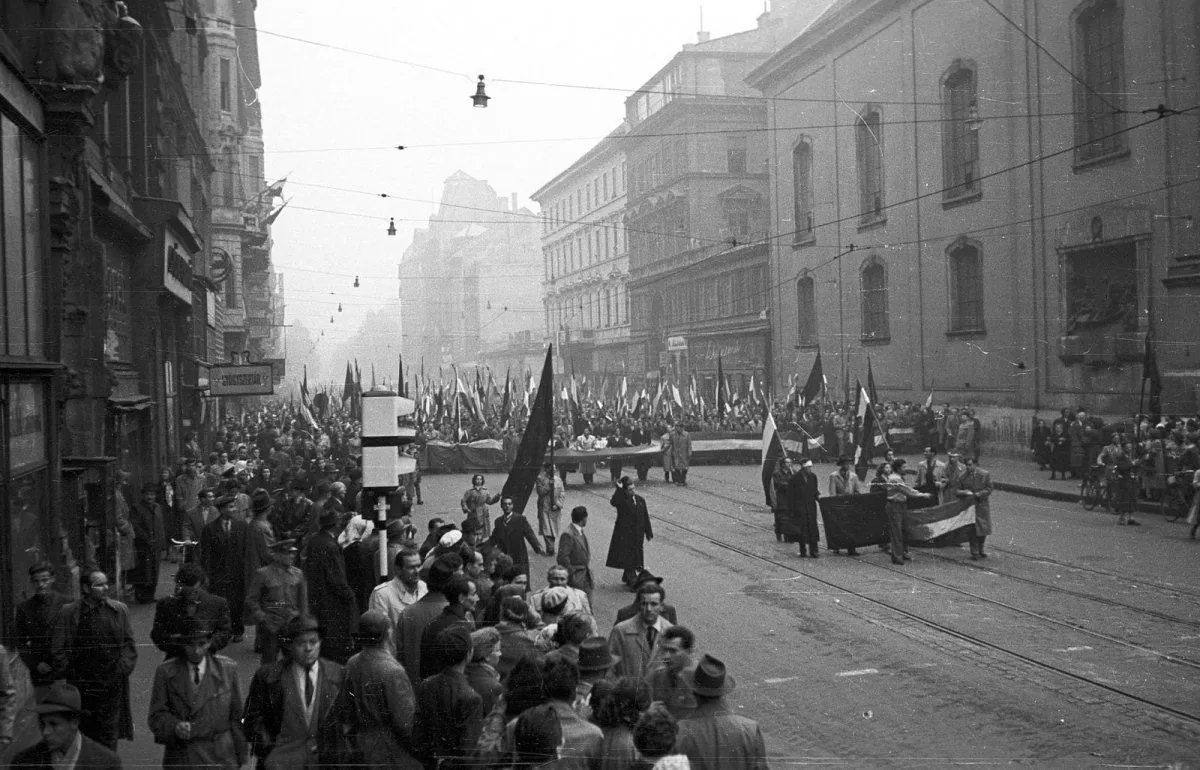Hungarian PM's Aide Sparks Outrage with Controversial 1956 Uprising Comments
A top aide to Hungary's Prime Minister Viktor Orban has caused controversy by suggesting Hungary should not have resisted the 1956 Soviet invasion, drawing parallels to Ukraine's current situation. The comments have sparked widespread condemnation.

In a recent development that has stirred significant controversy in Hungary, a senior aide to Prime Minister Viktor Orban has made contentious remarks about the country's 1956 uprising against Soviet rule. The comments, which drew parallels between the historical event and Ukraine's current resistance against Russian forces, have ignited a fierce debate about national memory and foreign policy.
Balazs Orban, the political director to the Prime Minister (and not related to him), suggested in an interview that Hungary might have fared better by not resisting the Soviet invasion in 1956. He extended this logic to criticize Ukraine's decision to defend itself against Russian aggression, which began in February 2022.
"Considering 1956, we would have probably not done what President Zelenskiy did 2.5 years ago, as it is irresponsible, as we can see that he led his country into a defensive war, many lives were lost and territories lost."
The aide's comments have been met with widespread condemnation, with opposition leader Peter Magyar labeling them as "scandalous and traitorous." Magyar emphasized that the statements "humiliated the memory of thousands of Hungarian freedom fighters."

It's worth noting that the Hungarian Revolution of 1956 was a pivotal moment in the country's history. The uprising, which lasted from October 23 to November 10, 1956, resulted in approximately 2,500 Hungarian and 700 Soviet casualties. Over 200,000 Hungarians fled as refugees in its aftermath. The Soviet forces deployed over 6,000 tanks during the invasion, codenamed "Operation Whirlwind."
Prime Minister Viktor Orban, who rose to prominence in 1989 by demanding the withdrawal of Soviet troops from Hungary, has distanced himself from his aide's remarks. In a radio interview, Orban stated that the comments were "ambiguous" and a "mistake," emphasizing that his government stands firmly on the foundation of the 1956 revolution.
The controversy highlights Hungary's complex relationship with Russia and its stance on the ongoing conflict in Ukraine. Despite being a NATO member since 1999 and part of the European Union since 2004, Hungary under Orban's leadership has maintained strong economic ties with Russia, even after the invasion of Ukraine. The country has also refused to send arms to Ukraine, a position that has strained relations with its Western allies.
This incident has reignited discussions about Hungary's historical memory and its current foreign policy. The 1956 uprising, which began with student demonstrations in Budapest, inspired other resistance movements in Eastern Europe and led to significant changes in Hungary's communist system. However, the events of 1956 remained taboo subjects in Hungary until the late 1980s.
As Hungary approaches the anniversary of the 1956 uprising on October 23, this controversy serves as a reminder of the enduring impact of historical events on contemporary politics and national identity. It also underscores the challenges faced by countries in Eastern Europe as they navigate their relationships with Russia and the West in an increasingly complex geopolitical landscape.


































